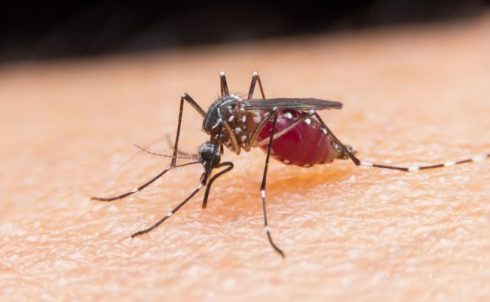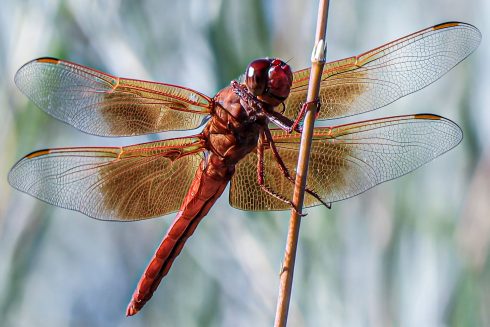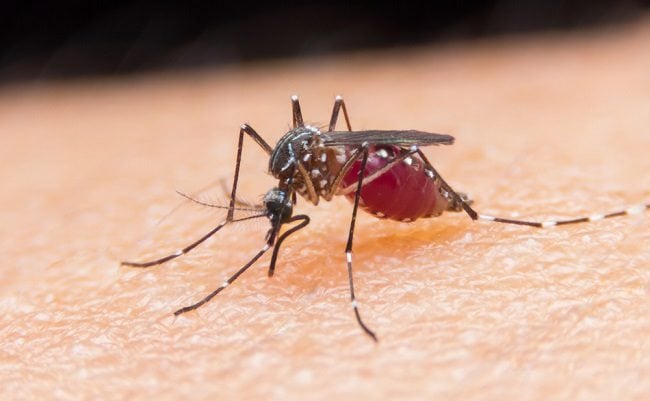MOSQUITOES have arrived extra early in southern Spain this year and here’s how to prevent the pests attacking you while you sleep.
From Victoria Secret perfumes to high frequency audio, many products have claimed to repel mosquito bites.
Residents of southern Spain are desperately searching for solutions after a little boy died of West Nile virus recently.
Two cases of the disease have been reported in Sevilla, but in the past few years, plagues have been identified all over the southern coast.
So, how can you keep them away?

Photo: Cordon Press
Chemical options
Deet is a very reliable and highly effective insect repellent that has been in use since 1957.
It is sold under many different brand names and in many different forms, including lotion and spray.
Concentrations of Deet range from around 5% all the way up to 100%, with a stronger percentage in general meaning the insects will be repelled for longer.
But any concentration higher than about 50% doesn’t offer significantly more protection, and 10 to 30% will provide sufficient protection for almost every scenario.
It is generally recommended to use less than 10% concentration on children, and never on children under five.
There have been complaints of minor skin and eye irritation, but as long as you use it in moderate concentrations and according to directions, it is considered safe.
Permethrin is another effective repellent but is meant for clothing rather than skin. It can last for at least two weeks – even through washes.
Dos and Don’ts for Deet
DO:
- Use sprays to treat skin and clothing, for an even application
- Use liquids, creams and sticks for precision applications
- Wash Deet-covered skin with soap and water
- Keep insect repellents out of reach of children
- Apply suncream first and then Deet.
DON’T:
- Apply to eyes, lips or mouths, or over cuts, wounds or irritated skin
- Over-apply to skin, or saturate clothing
- Apply to skin beneath clothing, or skin that isn’t exposed
- Apply more often than recommended on the product level
Alternatively, if you prefer not to apply Deet to your skin overnight, you could try a plug in chemical repellent or trap.
However, there have been reports the chemicals omitted could be harmful to human health.
Natural solutions
If you don’t like the idea of chemical repellents, there are plenty of natural products which can be just as effective.
Try diffusing lemon, eucalyptus, tea tree oil, lavender, mint, geranium or citronella oil, all of which have shown to repel mosquitoes.
Lemon eucalyptus is especially effective, providing the same protection as lower percentage Deet products.
You may also apply oil directly to the skin, but dilute it with a carrier oil like coconut, jojoba or olive oil first to avoid irritation.
This method can also be a great way to combine bite prevention and a deep moisture boost in the summer months.
However, please note that oil should not be used on children under five.
Prepare your space
Experts recommend using fans at night, as keeping the air moving will prevent mosquitoes from landing on you.
They also advise removing any standing water as this is where mosquitoes like to breed.
At night, make sure to shut your curtains or persianas properly as the bugs are attracted to light.
If it comes to it, you may also want to invest in a mosquito net to stop the insects coming near you.
High frequency plug-ins: fact or fiction?
In 2012, a world renowned advertising award was given to a campaign in which a Brazilian radio station broadcast ultrasound underneath its programme to repel mosquitoes.
The myth that the bugs can be driven away by high frequency sound has long been believed.
Designed to mimic dragonflies, mosquitoes’ natural predators, several plug in devices are on the market, but do they actually work?

According to entomologist and chair of the Dutch Malaria Foundation advisory board, Bart Knols, there is ‘no scientific evidence whatsoever’ to support this claim.
Most devices operate at 15hz, a much higher frequency than that of dragonflies.
Even still, a review of 10 scientific studies showed these devices had no effect in repelling the pesky bugs.
Click here to read more Spain News from The Olive Press.









